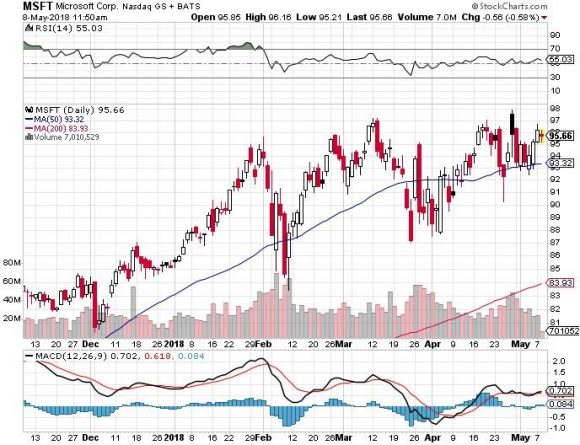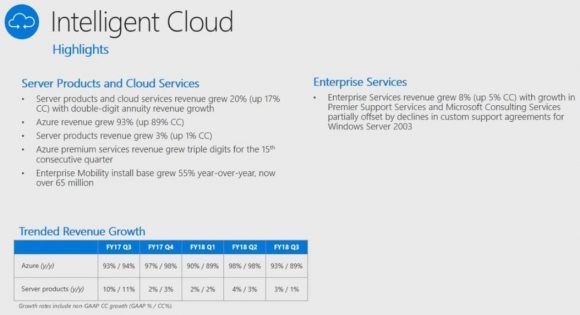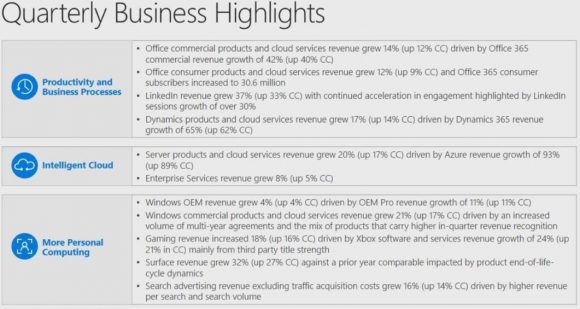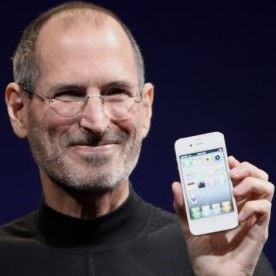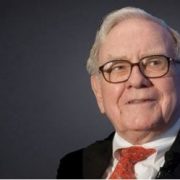Here's the Top Stock in the Market to Buy Today
When the CEO of Microsoft, Satya Nadella, sits down for a candid interview, I move mountains then cross heaven and hell to listen to him, and you should, too.
Microsoft is at the top of my list as a conviction buy.
Nadella is one of the great CEOs of our time and was able to complete Microsoft's makeover after Steve Ballmer's insipid tenure at the helm.
Microsoft's Build conference is the perfect platform for Nadella to share his wisdom about the company, industry, and changes going forward.
In an age where tech CEOs thrive off of smoke and mirrors, Nadella was succinct conveying the concept of trust as the secret sauce that will help tech's digital footprint expand into new territories.
Trust infused products through the cloud and A.I. will be the perfect archetype of future tech that will encourage accelerated adoption rates.
A.I. was the message of the day at the Build conference. Nadella used the term A.I. 14 times and the word cloud four times when interviewed.
It was fitting that Microsoft wowed the audience with a sparkly, new-fangled demo.
The demo put on by Microsoft in conjunction with Amazon's (AMZN) Alexa showed smart-assistants working in collaboration.
Microsoft showed how it is possible to use a PC Windows desktop to order an Uber car through Amazon's Alexa.
This technology is very powerful and is a work-around for the "walled garden" problem where big companies are closing off their systems only to proprietary software and products limiting upside potential.
The ability to collaborate with multiple A.I. smart systems will generate a whole new layer of business catering toward the communication and business developments among A.I. systems.
Nadella also offered extended examples of A.I. applications, for instance, the capability of detecting cracks in an oil pipeline and running recognition software through a drone using a Qualcomm (QCOM) manufactured camera to monitor the state of containers.
Trusting A.I. will expedite the usage of A.I. business applications, and the companies diverting capital into A.I. enhancement will reap from what they sow.
The knock-on effect is that university A.I. staff members are being poached faster than a breakfast egg. There is a bidding war going on as we speak from both sides of the Pacific.
Facebook is opening new A.I. research centers in Seattle and Pittsburgh.
Previously, A.I. was a buzzword and companies would trot out a visually stimulating display with pizzazz. But that is all changing with A.I. swiftly moving into the backbone of all business operations.
Ottomatika, a company that develops software for autonomous cars acquired by Aptiv (APTV), was entirely a Carnegie Mellon University (CMU) in-house project that was picked up by Aptiv for commercial applications.
In one fell swoop, (CMU) lost a whole team of leading A.I. researchers.
Microsoft is a premium stock because it straddles both sides of the fence.
On one side, it's an uber growth company with Microsoft Azure growing 93% YOY satisfying investors requirement for insatiable growth.
On the other hand, Microsoft is robustly lucrative profiting $21.20 billion in 2017, and would be a Warren Buffett-type of cash flow reliant stock even though he has smothered any inkling of buying Microsoft shares because of his close relationship with co-founder Bill Gates.
Even Microsoft's legacy product Microsoft Office 365 is a gangbuster segment swelling 42% YOY.
This contrasts with other legacy companies that are attempting to wean themselves from their own outdated products.
Office 365 products are still embedded in daily life, and I am using it now to type this story.
On the technical side of it, Microsoft is beefing up its developer tools.
Microsoft will integrate Kubernetes, an open-source system for automating deployment, into the Azure as well as upping its Azure Bot Service adding 100 new features.
There are more than 300,000 developers who operate the Azure Bot Service alone.
The slew of upgrades for developers will enhance the power of Microsoft's software and ecosystem.
The overarching theme to the Build conference is the integration of A.I. into real life business applications and the importance of the cloud.
Now the Cloud.
Nadella reaffirmed Microsoft's position in the cloud wars characterizing the current environment as a duo of Amazon and Microsoft with Google trailing behind.
Microsoft has the potential to nick Amazon's position as the industry's cloud leader because of the unique set of products it can combine with the cloud.
Most of the world utilizes a mix of PC-based hardware, using Microsoft's software and operating system, supplemented by an Android-based smartphone.
As expected, Microsoft, Alphabet (GOOGL), and Amazon are spending a pretty penny advancing their cloud business.
Microsoft spends more than $1 billion per month on Azure cloud data centers.
This number now surpasses the entire annual Microsoft R&D budget.
In the interview, Nadella cited that Microsoft now has 50 domestic data centers.
Amazon habitually holds between 50,000 to 80,000 servers at each data center. Extrapolate the lower range of the number with 50 data centers and Microsoft could have at least 2.5 million servers working for its data needs.
The barriers of entry have never been higher in the cloud industry because the costs are spiraling out of control.
Few people have billions upon billions to make this business work at the appropriate scale.
Tom Keane, head of Global Infrastructure at Microsoft Azure, recently said that Azure meets 58 compliance requirements set forth by the federal government, industry, and local players.
Azure is the first cloud that satisfies the Defense Federal Acquisition Regulation Supplement criteria for contractors to handle Department of Defense work.
Regulation has emerged as one of the controversial issues of 2018, and this did not get lost in the shuffle.
The trust comment was clearly a thinly veiled swipe against Facebook's (FB) much frowned upon business model, making it commonplace these days for prominent CEOs to distance themselves from Mark Zuckerberg's creation.
Protecting a company's image and reputation is paramount in the new rigid era of big data.
Nadella's anti-Facebook rhetoric continued by noting the auction-based pricing standards are "funky," explaining the model is counterintuitive. His reason was that as demand increases, the price should drop and not rise.
Apple (AAPL) CEO Tim Cook has largely been negative about Facebook's tactics. The fury is justified when you consider Apple and Microsoft hustle industriously to develop software and hardware products while Facebook manipulates user data to profit from collected data. A nice shortcut if there ever was one.
It's clear that Apple and Microsoft have no interest in giving third parties access to personal data because the leadership understands it is a slippery slope to go down and unsustainable.
Nadella's emphasis on tech ethics is a breath of fresh air and the data Microsoft accumulates is used to improve the cloud and software products rather than pedal to mercenaries.
The companies that have staying power create proprietary products that cannot be replicated.
Microsoft's assortment of software products acts as the perfect gateway into the cloud and is a moat widening tool.
A.I. and the cloud are all you need to know, and Microsoft is at the heart of this revolutionary movement.
Any weakness of Microsoft's shares into the low-90s is a screaming buy.
_________________________________________________________________________________________________
Quote of the Day
"Innovation has nothing to do with how many R&D dollars you have. When Apple came up with the Mac, IBM was spending at least 100 times more on R&D. It's not about money. It's about the people you have, how you're led, and how much you get it." - said Apple cofounder Steve Jobs.

